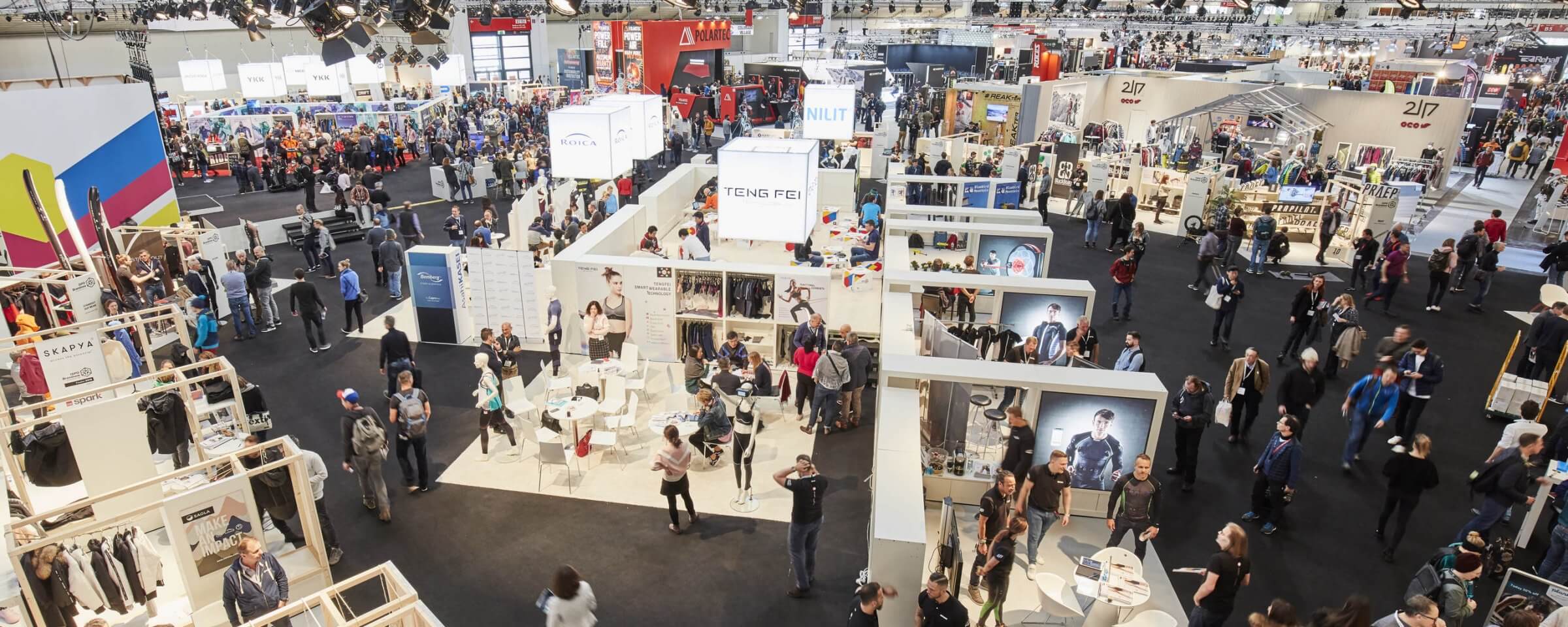2,800 exhibitors and 80,000 visitors. The ISPO Munich is known as the world’s largest trade fair for sports business.
Although experts were still predicting the demise of trade fairs a few years ago, their consistent visitor numbers paint a different picture. Margit Gosau, CEO of SPORT 2000 International and SPORT 2000 GmbH is convinced that trade fairs are essential, but sees a change in their function: “At the major trade fairs in the sports business, it’s not primarily about orders any more, but about international communication about topics and trends that are relevant to trade and industry. This means trade fairs have become platforms for topics and provide fresh impetus that often goes beyond their own industry.”
Trade fairs such as the ISPO Munich show that there is a large amount of unexploited potential for industry and trade driving the sector.
Showroom for the latest trends and innovations

Compared to trade fairs, almost no other platform manages to bring together all of an industry’s trends and innovations in one place and to allow the interested public to experience them.
Trade fairs are vital for brands that want to show their customers what they will soon be offering. “Retailers benefit from a common marketplace for all relevant brands, they’re informed about innovations and trends, and can therefore prepare for the subsequent order fairs and make more targeted product range decisions,” explains Gosau, putting the advantage for participating retailers in a nutshell.
In particular, in emotion-driven sectors such as the sports business, physically experiencing products has a particular value – virtually displaying these products still has limitations.
Community – personal interaction between retailers and industry partners

Although trade fairs were previously regarded as a yardstick, digitalisation, cross-border networking and the emergence of conference calls called the relevance of trade fairs into question.
The vision of virtual trade fairs has gained more and more attention – visitors do not have to leave their workplace and can conveniently participate in the trade fair online. A correction took place. Few major trade fairs survived, and those that did gained authority.
Today we know that personal interaction between people, as happens in a trade fair visit, is gaining significance. This is because this interaction will always have a different, much better quality than online contact. “In the case of trade fairs such as the ISPO, we use the opportunity to swap ideas with industry partners in peace across topics – time that is often skipped in day-to-day business,” says Gosau.
In addition to their function as a network platform, trade fairs also endeavour to give visitors particular added value through exclusive forums, workshops and talks. Award ceremonies have also taken root across industries in the last few years.
SPORT 2000 order fairs as relevant trade platforms

In addition to trade fairs, SPORT 2000 has established an internal communication platform for retailers and industry. At order fairs, which take place regularly, members within the association find out about the coming seasons’ trends and at the same time have the opportunity to order directly on site. “The order fairs offer our retailers enormous added value. Retailers can obtain an overview of all the innovations in our industry partners’ various ranges in a time- and cost-efficient way, and order immediately,” Gosau says, explaining the fair’s concept.
In addition to the order, just like at the major trade fairs, personal interaction is also central: “The meeting of retailers, partners from the sporting goods industry and the internal SPORT 2000 buying team encourages interaction, creates closeness and creates synergies that benefit everyone. In addition, the feedback from retailers’ experience to industry partners is particularly exciting and is seen as important guidance for a successful future partnership.”




